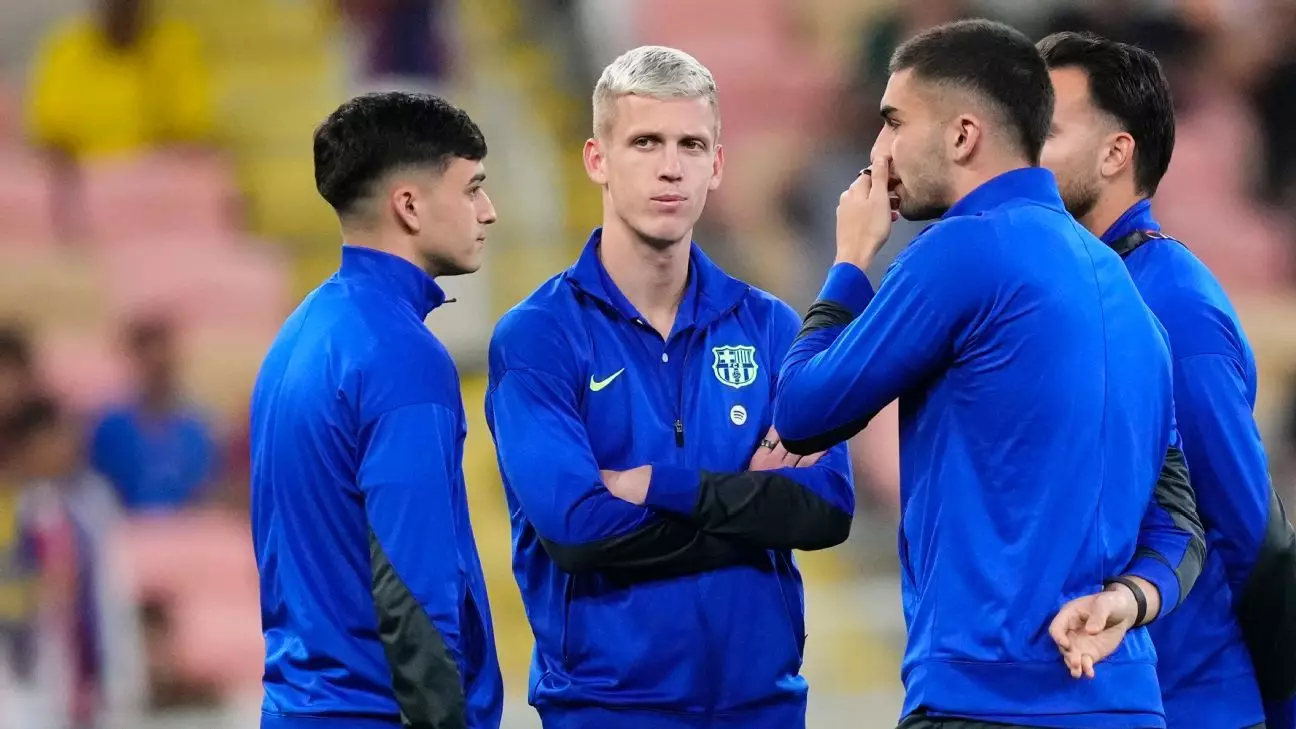In the realm of football, decisions made by governing bodies often ripple through clubs, players, and fans alike, igniting fervent debates regarding fairness and integrity within the sport. The recent granting of provisional registrations for Barcelona players Dani Olmo and Pau Víctor by Spain’s top sports court has uncovered a blistering critique from Athletic Club, raising substantial concerns about the regulatory environment in Spanish football. The situation crystallizes the tensions between compliance, governance, and what each club perceives as fair play.
The crux of this controversy lies in Barcelona’s inability to meet LaLiga and Royal Spanish Football Federation (RFEF) financial fair play requirements, specifically missing the December 31 deadline to prove its financial compliance. This compliance is vital in a league that emphasizes fiscal responsibility amid soaring player wages and transfer fees. The failure to meet these criteria initially left Olmo and Víctor ineligible to play, which should have underscored LaLiga’s commitment to enforcing its rules uniformly across clubs. However, the subsequent successful appeal to Spain’s Sports Council (CSD) for provisional registrations has raised eyebrows.
Athletic Club’s president, Jon Uriarte, has publicly condemned this situation, labeling the CSD’s decision as “grotesque”. His rhetoric points to systemic inconsistencies that undermine the credibility of competition in LaLiga. By referencing political influences on what is fundamentally a sports regulatory issue, Uriarte’s statements reflect a growing sentiment among clubs that perceive uneven treatment—a narrative that can diminish the league’s reputation.
In any professional league, the integrity of the competitive framework is paramount. When temporary measures are introduced, they can cast a long shadow over the principles of fair play. Athletic forward Iñaki Williams expressed concerns that such decisions may well tarnish the image of Spanish football. It gives the perception that rules can be bent or circumvented, leading to an environment where clubs feel demoralized and fans bewildered. Williams’ comments resonate with a broader anxiety among stakeholders regarding the evolving landscape of regulatory governance.
Deco, Barcelona’s sporting director, defended the club’s actions. He suggested that every club faces its own set of challenges and should inherently focus on navigating those hurdles. While this may be valid advice, it fails to address the core of Athletic’s grievances—which is the perceived inequity. Dissecting the response from Barcelona, one cannot help but notice a degree of detachment; it exemplifies a defensiveness which might result from increased scrutiny.
Leadership within Spanish football faces the daunting task of maintaining competitive balance while implementing regulations designed to ensure long-term sustainability. Javier Tebas, LaLiga president, weighed in on the CSD’s decisions, expressing astonishment and calling attention to what he perceives as an inconsistency in responses from governing bodies. His remarks evoke essential questions about the accountability of these authorities and their function in safeguarding the integrity of the league.
The elements of governance, accountability, and perception intertwine in this delicate scenario. If clubs believe that systemic biases exist within the regulatory processes, then the entire league could suffer from a lack of confidence among fans and potential sponsors, damaging the sport’s growth and appeal.
A Call for Uniformity and Clarity
As these debates unfold, it is imperative for regulatory bodies and clubs alike to foster an environment of transparency and consistency. Clarity in rule enforcement and a shared commitment to ethical practices are foundational to the sport that millions adore. The ongoing discussions surrounding Olmo and Víctor, while significant for those directly involved, serve as a reflective surface for broader inquiries about the future of Spanish football.
In the end, both players, now eligible to compete, deserve a platform to showcase their skills without the weight of controversy overshadowing their careers. The challenge remains for all stakeholders—including clubs, governing bodies, and fans—to strike a balance that preserves the spirit of competition while ensuring fairness and integrity in professional football. As the dust settles on this episode, the hope is that it serves as a catalyst for necessary dialogues on governance and the commitment to a level playing field for all involved in the beautiful game.


Leave a Reply